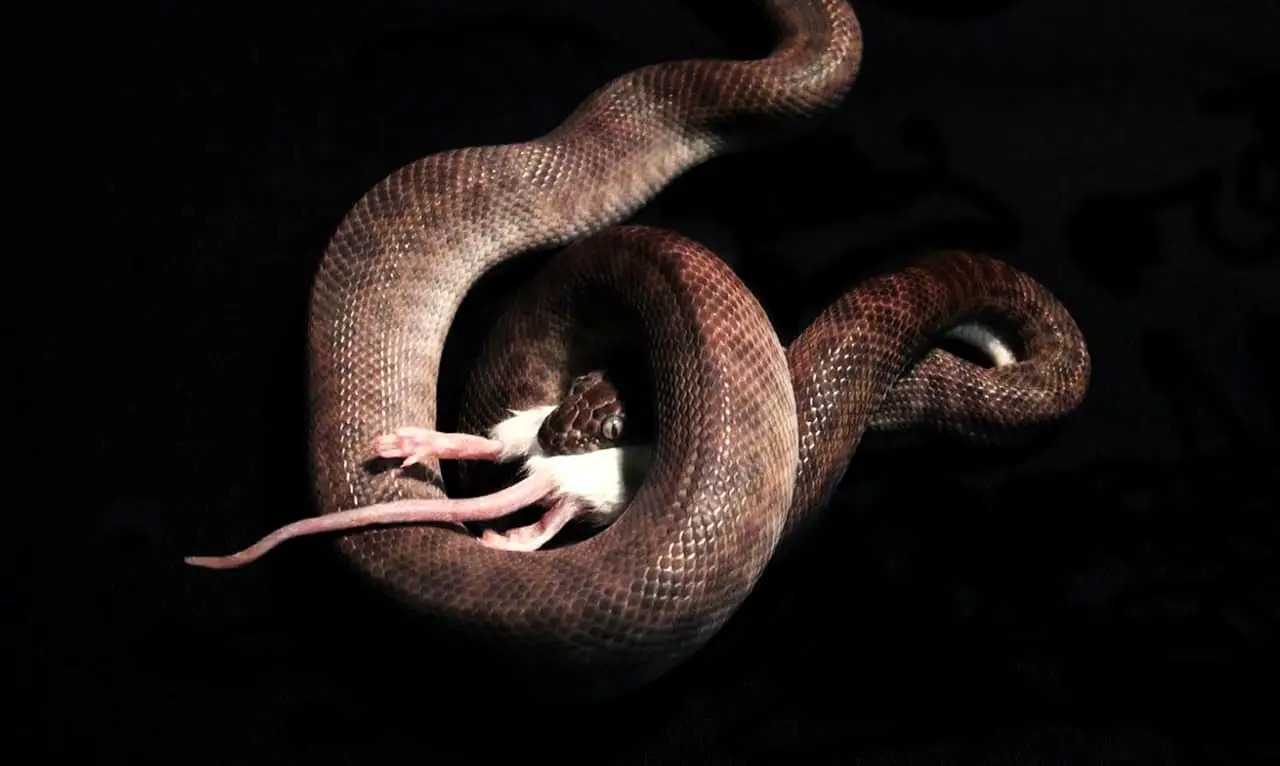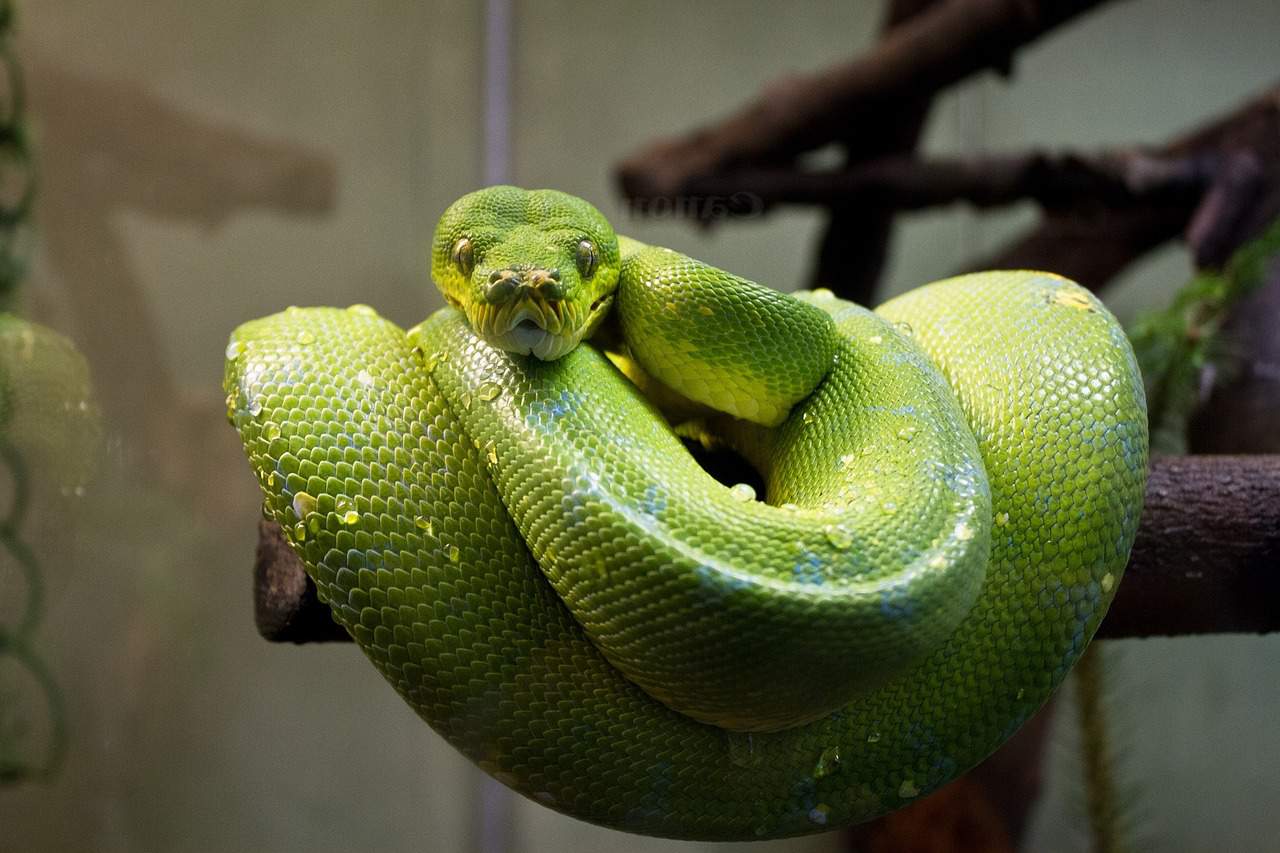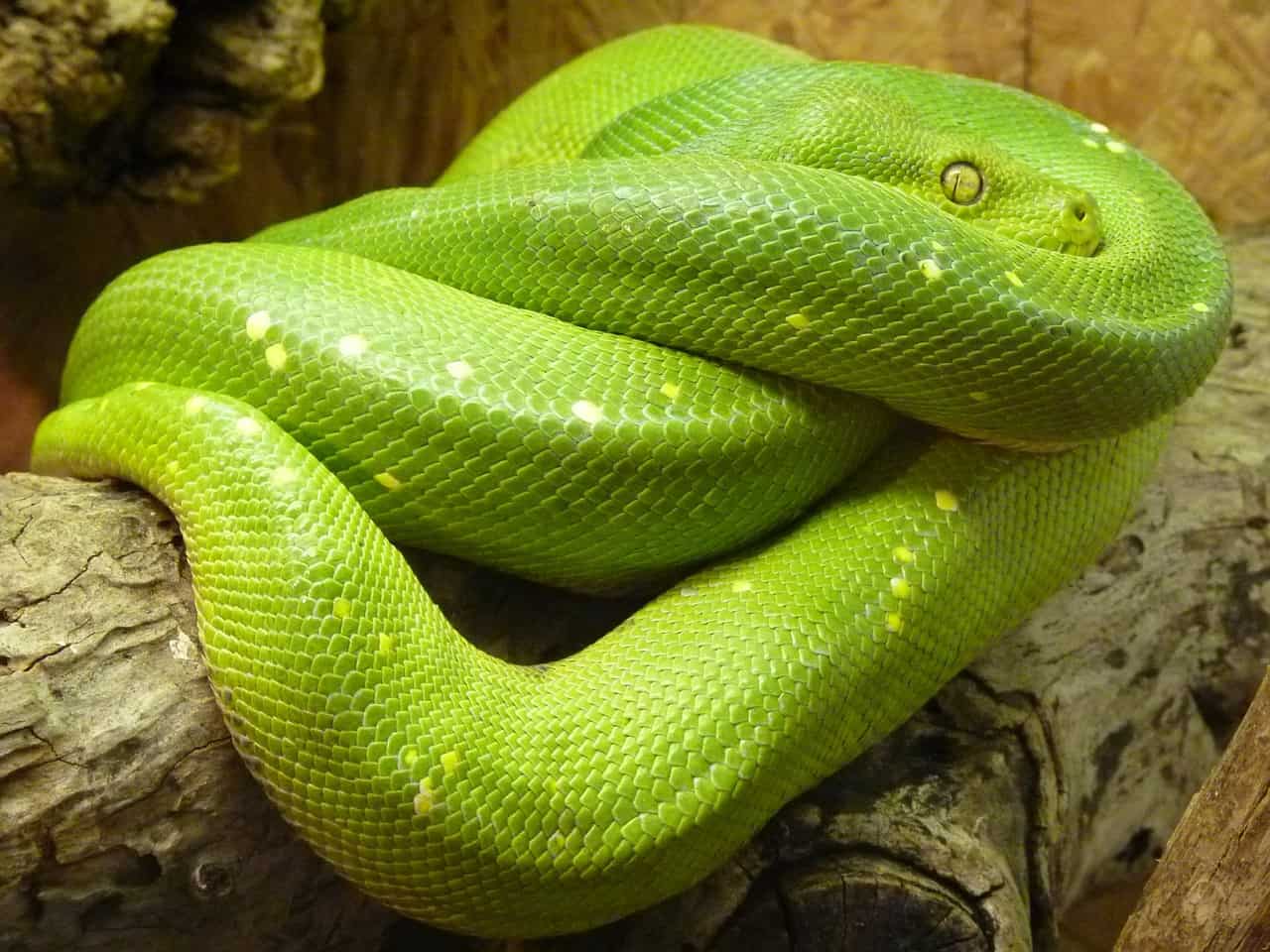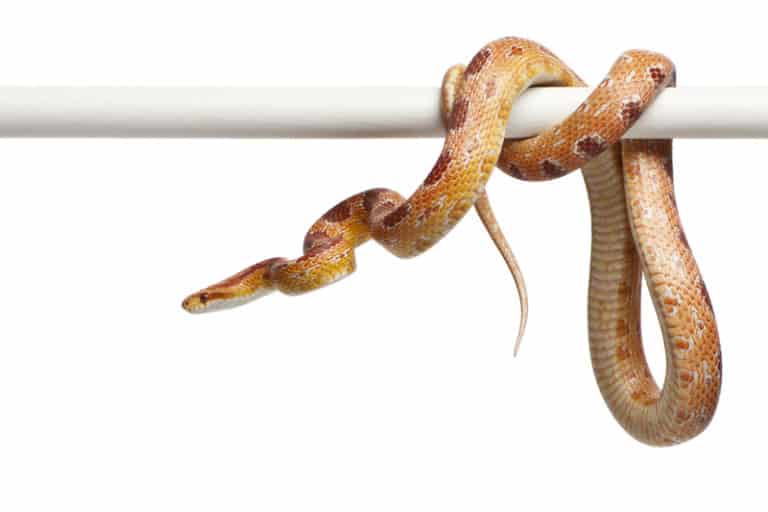Table of Contents
Snakes can make truly wonderful pets. They do not take up a lot of time like dogs might; they do not smell or leave a lot of hair around as cats do, and they are not very expensive to maintain. They are quiet, so you never have to worry about waking up in the middle of the night when they start barking, and they do not need very much room. In fact, just about the only thing, you have to worry about when it comes to snakes is figuring out: what do snakes eat?
Feeding a snake can be somewhat complicated and is not for the faint of heart. While it is less expensive to feed a snake than it is to feed a lot of other pets, it is not always as simple. It is important to consider not only what do snakes eat but also how they should be fed, how often they should eat, and whether it’s important to give them water or some kind of supplement to make sure they’re getting all the nutrition they need.
What Do Snakes Eat?

Image from Pixabay
Understanding Your Snake
Your snake is a carnivore. This means that it eats meat and cannot survive on any other type of diet. Unlike many other carnivores, snakes eat their meat whole and unchewed. Snakes prefer to eat live food, but they will eat dead pray if it has been freshly killed and is presented to them in the right way.
What Should I Feed It?
The diet of a snake depends upon the specific species in question, so it is important to find out what your particular species of pet prefers to eat.
“What do snakes eat?”, Well here are some of the commonly preferred foods of snakes:
- Insects, such as earthworms or slugs
- Reptiles, such as frogs or turtles
- Warm-blooded creatures, such as birds or rodents
Should I Feed Live Prey?
As you are figuring out what do snakes eat, it is first important to know that you must seek freshly killed prey rather than live prey. In the first place, some live prey will be capable of injuring your snake, either externally or internally. This may happen if the snake happens not to be hungry at the moment that you feed. If the snake is attacked by live prey, it may become frightened of that prey and refuse to eat it later.
Another issue is that live prey can simply be too much for a snake, particularly a very young snake. In a worst-case scenario, particularly aggressive or motivated live prey could even kill your snake. Not to mention that the prey animal will suffer a great deal in the process of being hunted and eaten. Killing it prior to serving it to your snake is far more humane for all involved and is safer for your snake.
How Should I Feed It?
Snakes can be quite picky about how and what they eat so it is important To feed them in the right way. In addition to making sure that their prey has been freshly killed, you also increase the chance of success by following these tips:
- Use tongs or a similar device to walk the prey around the cage. This makes it appear that the prey is alive and makes it more appetizing to your snake.
- Dip the food into some warm chicken broth before offering it to your snake.
- Rub the freshly killed prey up against live prey before offering it to the snake. This is especially useful if you are trying to get your snake interested in a new kind of food. Rub the new food against a live specimen of prey that you already know the snake likes.
- Try feeding your snake freshly killed prey of a different color. Sometimes a snake will refuse to eat a green frog but will be happy to eat a brown one.
- Warm up the kill to make sure it’s a bit warmer than room temperature.
- Cut it open. This allows more odor to be released and the food will smell better to your pet. Snakes are particularly attracted to the smell of brain matter.
- Make sure the snake is warm enough. If a snake’s metabolism slows down, it may not be interested in eating.
- Make sure that the habitat is appropriate for your species of snake. If it’s too dark, too small, too humid, or too cold, your snake may refuse to eat.
What If a Snake Won’t Eat?
There are plenty of benign reasons why a snake may not want to eat. If they are not warm enough, if it is too noisy, if they do not have enough privacy, if they have entered hibernation mode, or if they are shedding or pregnant, they may not be willing to eat. If your snake has just arrived and is getting used to a new environment, this could be the reason the snake does not want to eat. Most of these issues can be resolved with time or by carefully monitoring and adjusting the enclosure environment.
If a snake persists in refusing to eat, this can be a sign of some other issue. Snakes with parasites, kidney failure, gout, or even cancer may stop eating. If your snake has been eating happily but has suddenly refused to eat, particularly if there is no obvious precipitating circumstance such as the addition of a new snake to the enclosure or a change of location, you should take your snake to a veterinarian. If your snake refuses to eat for an extended period, this is another good reason to get a physical examination and testing.
How Often Should They Be Fed?

Image from Pixabay
Newly hatched snakes may not eat for the first two or three weeks of their life. Small snakes usually eat about twice a week. Large snakes may eat as often as once a week or as infrequently as only once every two or three weeks. An adult corn snake only eats about once every 10 days. An adult king snake needs to be fed once or even twice a week. It is important to ask your veterinarian for information about your particular breed of snake and how often it should be fed.
Some snakes will only eat at night, such as the ball python. Find out if your breed of snake is nocturnal so you will know the best time to feed. It may also be wise to move your snake into a separate feeding enclosure whenever it’s time to eat. This can help to keep the main enclosure more sanitary. If you have more than one snake, this will also let each snake eat in peace without fear of competition.
What About Water or Supplements?

image from Pixabay
Water
All living things need water, and snakes are not an exception. It is important that your snake has access to fresh, clean water at all times. In addition, having a large bowl of water within the enclosure means that the enclosure will maintain better humidity levels.
It is important to use a large bowl that cannot be spilled or tipped over. You may find that your snake enjoys laying in the water as well as drinking from it. You should also know that it is quite common for snakes to defecate in their water bowl, so make sure you wash and disinfect the bowl daily.
Supplements
Supplements can be valuable, but if a snake is being fed properly, it is unlikely they will need any. Since your snake will be getting most of its nutrition from the food it eats, it is important that this food is of the best quality. Many people raise their own rodents to feed to their snake because this ensures that the rodents are healthy and eating well.
While most snakes will not need vitamins or supplements, it is a good idea to check-in regularly with the veterinarian to make sure that your snake is not suffering from any nutritional deficiencies. Occasionally, snakes who eat mainly insects, worms, and fish can benefit from supplements or vitamins, but this is something you should seek a veterinarian’s advice about.
What Do Snakes Eat? – Conclusion
Snakes can be rewarding pets and interesting companions, but it is important to ask yourself “what do snakes eat?” before you buy one. Give them the nutrition they need so they can not only survive but also thrive and enjoy their life with you in your home. While it can feel difficult to consider feeding your snake a whole animal, whole prey provides the perfect balanced nutrition for a snake.
Feeding snakes can be quite inexpensive, but it is important to present the food in a way that the snake will appreciate and to feed at the right times and the right amounts. It is also important that you make sure your snake’s environment is ideal. With the right habitat and enclosure, the snake will feel safe and comfortable enough to eat. It’s also crucial to provide your snake with clean water on a regular basis as well as regular veterinary checks.
If you provide your snake with healthy food and clean water, you can expect to enjoy the company of this amazing creature for many years.
[amazon bestseller=”snake habitat kit” items=”3″]


